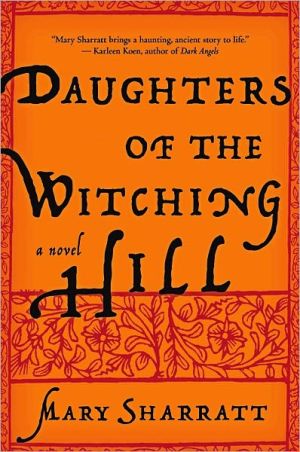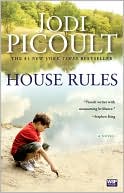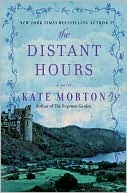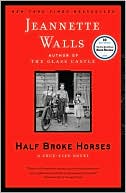Daughters of the Witching Hill
Daughters of theWitching Hill brings history to life in a vivid and wrenching account of a family sustained by love as they try to survive the hysteria of a witch-hunt.\ Bess Southerns, an impoverished widow living in Pendle Forest, is haunted by visions and gains a reputation as a cunning woman. Drawing on the Catholic folk magic of her youth, Bess heals the sick and foretells the future. As she ages, she instructs her granddaughter, Alizon, in her craft, as well as her best friend, who...
Search in google:
In Daughters of the Witching Hill, Mary Sharratt brings history to life in a vivid and wrenching novel of strong women, family and betrayal inspired by the 1612 Pendle witch trials. Bess Southerns, an impoverished widow, lives with her children in a crumbling old tower in Pendle Forest. Drawing on Catholic ritual, medicinal herbs, and guidance from her spirit-friend Tibb, Bess heals the sick and foretells the future in exchange for food and drink. As she ages, she instructs her best friend, Anne, and her granddaughter, Alizon, in her craft. Anne ultimately turns to dark magic, while Alizon struggles to accept the power she has inherited and dreams of a simpler life. But when a peddler suffers a stroke after exchanging harsh words with Alizon, a local magistrate tricks her into accusing her family and neighbors of witchcraft. Suspicion and paranoia reach frenzied heights as friends and loved ones turn on one another and the novel draws to an inevitable conclusion.Publishers WeeklyIn this slow-burning tale, author Sharratt (The Vanishing Point) gives voice to two prominent victims of the Pendle, England witch hunt of 1612, Bess "Demdike" Southerns and her 15-year-old granddaughter, Alizon. Living in poverty and illegitimacy, without the protection of men, the Southerns and their community gain some relief from powerlessness by harnessing a combination of Catholic and pagan magic: Demdike is a renowned "blesser," and Alizon may be even more adept than she. While Sharratt shows understanding for these women, her intent to present them sympathetically is undermined by her decision to portray their powers as real; healings, fortune-telling, and curses are recounted through a subjective, first-person account, but seem unambiguously actual. The waters are further muddied by awkward narration, which too often reads like bad Renaissance Faire dialogue. Though Sharratt successfully evokes the economic and social factors that marginalized these women and their fellows, as well as the paradoxical power they held over the community that feared them, one longs for Sharratt to commit either to a supernatural explanation of events, or a thoroughly realistic approach.Copyright © Reed Business Information, a division of Reed Elsevier Inc. All rights reserved.
See us gathered here, three women stood at Richard Baldwin's gate. I bide with my daughter, Liza of the squinteye,\ and with my granddaughter, Alizon, just fifteen and dazzling as the noontide sun, so bright that she lights up the murk of my dim sight. Demdike, folk call me, after the dammed stream near my dwelling place where the farmers wash their sheep before shearing. When I was younger and stronger, I used to help with the sheepwash. Wasn't afraid of the fiercest rams. I'd always had a way of gentling creatures by speaking to them low and soft. Though I'm old now, crabbed and near-blind, my memory is long as a midsummer's day and with my inner eye, I see clear.\ We three wait till Baldwin catches a glimpse of us and out he storms. Through the clouded caul that age has cast over my eyes, I catch his form. Thin as a brittle, dead stalk, he is, his face pinched, and he's clad in the dour black weeds of a Puritan. Fancies himself a godly man, does our Dick Baldwin. A loud crack strikes the earth - it's a horsewhip he carries. My daughter fair leaps as he lashes it against the drought-hard dirt.\ “Whores and witches,” he rails, shrill enough to set the crows to flight. “Get out of my ground.”\ Slashes of air hit my face as he brandishes his whip, seeking to strike fear into us, but it's his terror I taste as I let go of Alizon's guiding hand and step forward, fi rm and square on my ragbundled feet. We've only come to claim what is ours by right.\ “Whores and witches,” he taunts again, yelling with such bile that his spit sprays me. “I will burn the one of you and hang the other.”\ He speaks to Liza and me, ignoring young Alizon, for he doesn't trust himself to even look at this girl whose beauty and sore hunger would be enough to make him sink to his knobbly knees.\ I take another step forward, forcing him to back away. The man's a-fright that I'll so much as breathe on him. “I care not for you,” I tell him. “Hang yourself.”\ Our Master Baldwin will play the righteous churchman, but what I know of him would besmirch his good name forevermore.\ He can spout his psalms till he's hoarse, but heaven's gates will never open to him. I know this and he knows I know this,\ and for my knowing, he fears and hates me. Beneath his black clothes beats an even blacker heart. Hired my Liza to card wool,\ did Baldwin, and then refused to pay her. What's more, our Liza has done much dearer things for him than carding. Puritan or no, he's taken his pleasure of her and, lost and grieving her poor murdered husband, ten years dead, our Liza was soft enough to let him. Fool girl.\ “Enough of this,” I say. “Liza carded your wool. Where's her payment? We're poor, hungry folk. Would you let us starve for your meanness?”\ I speak in a low, warning tone, not unlike the growl of a dog before it bites. Man like him should know better than to cross the likes of me. Throughout Pendle Forest I'm known as a cunning woman, and she who has the power to bless may also curse.\ Our Master Baldwin blames me because his daughter Ellen is too poorly to rise from her bed. The girl was a pale, consumptive thing from the day she was born, never hale in all her nine years. Once he called on me to heal her. Mopped her brow, I did.\ Brewed her feverfew and lungwort, but still she ailed and shivered.\ Tried my best with her, but some who are sick cannot be mended. Yet Baldwin thinks I bewitched the lass out of malice.\ Why would I seek to harm a hair on the poor girl's head when his other daughter, the one he won't name or even look at, is my own youngest granddaughter, seven-year-old Jennet?\ “Richard.” My Liza makes bold to step toward him. She stretches out a beseeching hand. “Have a heart. For our Jennet's sake. We've nothing more to eat in the house.”\ But he twists away from her in cold dread and still won't pay her for her honest work, won't grant us so much as a penny. So what can I do but promise that I'll pray for him till he comes to be of a better mind? Soft under my breath, masked from his Puritan ears, I murmur the Latin refrains of the old religion. How my whispered words make him pale and quake - does he believe they will strike him dead? Off to his house he scarpers. Behind his bolted door he'll cower till we're well gone.\ “Come, Gran.” Alizon takes my arm to lead me home. Can't make my way round without her in this dark ebb of my years.\ But with my inner eye I see Tibb sat there on the drystone wall.\ Sun breaks through the clouds to golden-wash his guilesome face. Dick Baldwin would call him a devil, or even the Devil, but I know better. Beautiful Tibb, his form invisible to all but me.\ “Now I don't generally stand by woe-working,” says my Tibb,\ stretching out his long legs. “But if you forespoke Master Baldwin,\ who could blame you, after all the ill he's done to you and yours?” He cracks a smile. “Is revenge what you want?”\ “No, Tibb. Only justice.” I speak with my inner voice that none but Tibb can hear. If Baldwin fell ill and died, what would happen to his lawful daughter, Ellen? Her mother's long dead.\ Another poor lass to live off the alms of the parish. No, I'll not have that burden on my soul.\ “Justice!” Tibb laughs, then shakes his head. “Off the likes of Dick Baldwin? Oh, you do set your sights high.”\ Tibb's laughter makes the years melt away, drawing me back to the old days, when I could see far with my own two eyes and walk on my own two legs, with none to guide me.
\ Publishers WeeklyThe 1612 Lancashire, England, witch trials that resulted in nine executions inspires Sharratt’s gorgeously imagined novel that wonders if some of the accusations of witchcraft might be true. Sharratt (The Vanishing Point) focuses on the Southerns family of Pendle Forest. Widowed mother Bess Southerns tries to save her family from bleakest poverty by healing the sick, telling fortunes, and blessing those facing misfortune, conjuring “charmes” that combine forbidden Catholic ritual, medicinal herbs, and guidance provided by her spirit-friend, Tibb. Though Bess compassionately uses her powers, her granddaughter, Alizon, unwittingly endangers her family while under the interrogation of a conniving local magistrate. Sharratt crafts her complex yet credible account by seamlessly blending historical fact, modern psychology, and vivid evocations of the daily life of the poor whose only hope of empowerment lay in the black arts. Set in forests and towers, farms and villages, deep in a dungeon and on the gallows, this novel grows darker as it approaches its inevitable conclusion, but proves uplifting in its portrayal of women who persevere, and mothers and daughters who forgive. (Apr.)\ \ \ \ \ Library JournalBased on the infamous 1612 Lancashire witch trials, Sharratt's (The Vanishing Point) latest novel vividly portrays the religious turmoil and hardscrabble life of 17th-century rural England. It's a familiar premise: an old beggar woman accused of witchcraft is sentenced to hang, along with others of her ilk. What makes this story stand out are the strong voices of the two main characters, stalwart Bess Southerns (aka Demdike) and her feisty granddaughter Alizon Device. Demdike is a cunning woman, able to heal animals and people with herbal folk magic. She strives to do only good, but when she teaches her dear friend the craft, she releases a Pandora's box of resentment, revenge, and evil. Years later, Alizon comes into the power herself but denies it, and this leads to tragedy. VERDICT While not a quick read, this is a fascinating tale. The story unfolds without melodrama and is therefore all the more powerful. Recommended for fans of Katherine Howe's The Physick Book of Deliverance Dane.—Jamie Kallio, Thomas Ford Memorial Lib., Western Springs, IL\ \ \ Kirkus ReviewsThe Pendle witches' story, retold as a passionate saga of female friendship and a cautionary tale of feuding within a superstitious community. According to Bess Demdike's definition, she's not a witch because she uses her powers for good, not evil. Either way, in this latest version of a famous English historical episode, Sharratt (The Real Minerva, 2004, etc.) credits Bess with actual powers to charm and heal, courtesy of her familiar spirit Tibb, a shape-shifter linked to the leader of the fairy folk. The era is the late-16th and early-17th century, a time when the old Catholic faith is still being ruthlessly eradicated. The first portion of the text is narrated by widowed Bess, who describes how at age 50 she became "cunning," able to heal a sick child via inherited herbal wisdom, common sense, Catholic blessings and some help from Tibb. Soon she and her daughter have a reputation for sorcery, a hanging offence, and later Bess shares her knowledge with friend Anne Whittle, a generosity she will regret when the two become enemies. Bess's 17-year-old granddaughter Alizon takes over the story to describe the family's downfall. Arrested, shaved, examined and tried, Bess dies in prison, while her daughter, granddaughter and some unfortunate neighbors are subsequently hanged. Committed storytelling and visual detail mark this overlong but tightly wound historical.\ \ \ \ \ Publishers Weekly\ - Library Journal\ In this slow-burning tale, author Sharratt (The Vanishing Point) gives voice to two prominent victims of the Pendle, England witch hunt of 1612, Bess "Demdike" Southerns and her 15-year-old granddaughter, Alizon. Living in poverty and illegitimacy, without the protection of men, the Southerns and their community gain some relief from powerlessness by harnessing a combination of Catholic and pagan magic: Demdike is a renowned "blesser," and Alizon may be even more adept than she. While Sharratt shows understanding for these women, her intent to present them sympathetically is undermined by her decision to portray their powers as real; healings, fortune-telling, and curses are recounted through a subjective, first-person account, but seem unambiguously actual. The waters are further muddied by awkward narration, which too often reads like bad Renaissance Faire dialogue. Though Sharratt successfully evokes the economic and social factors that marginalized these women and their fellows, as well as the paradoxical power they held over the community that feared them, one longs for Sharratt to commit either to a supernatural explanation of events, or a thoroughly realistic approach.\ Copyright © Reed Business Information, a division of Reed Elsevier Inc. All rights reserved.\ \








